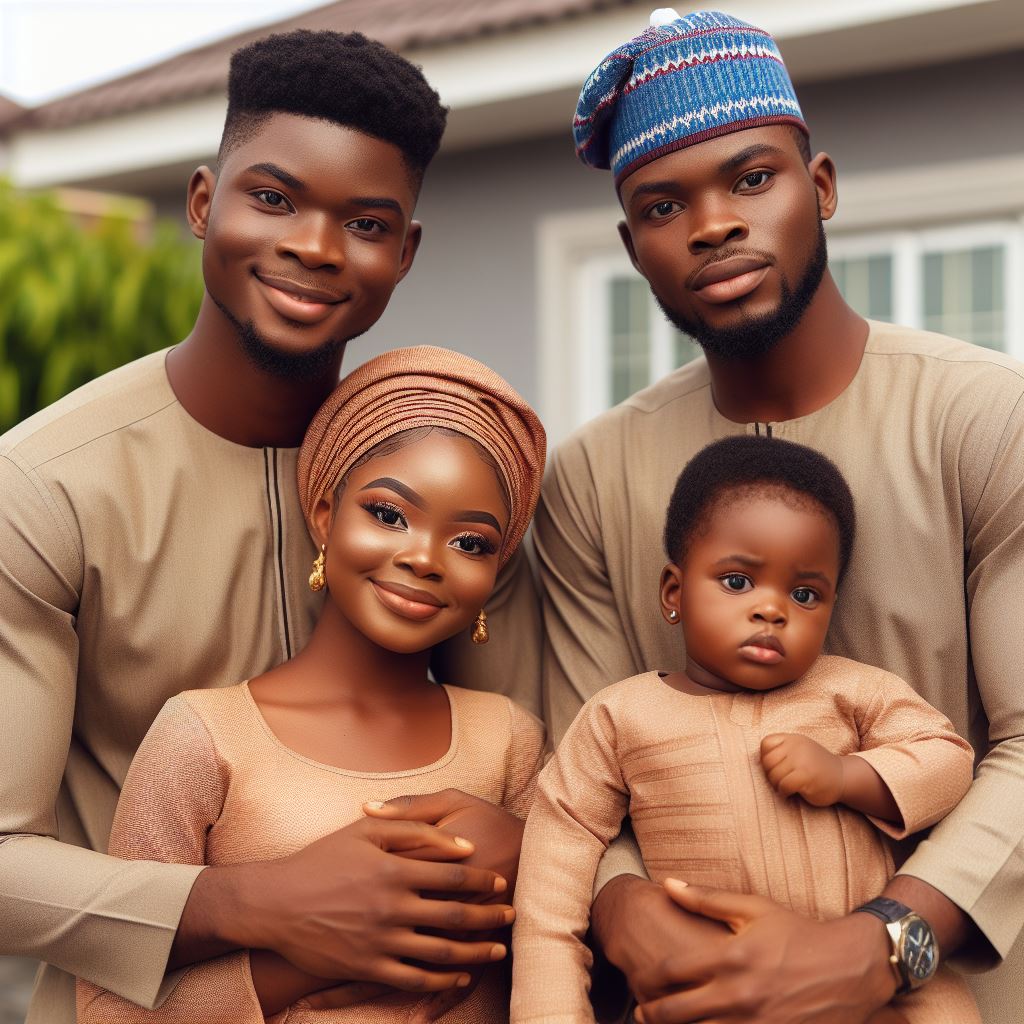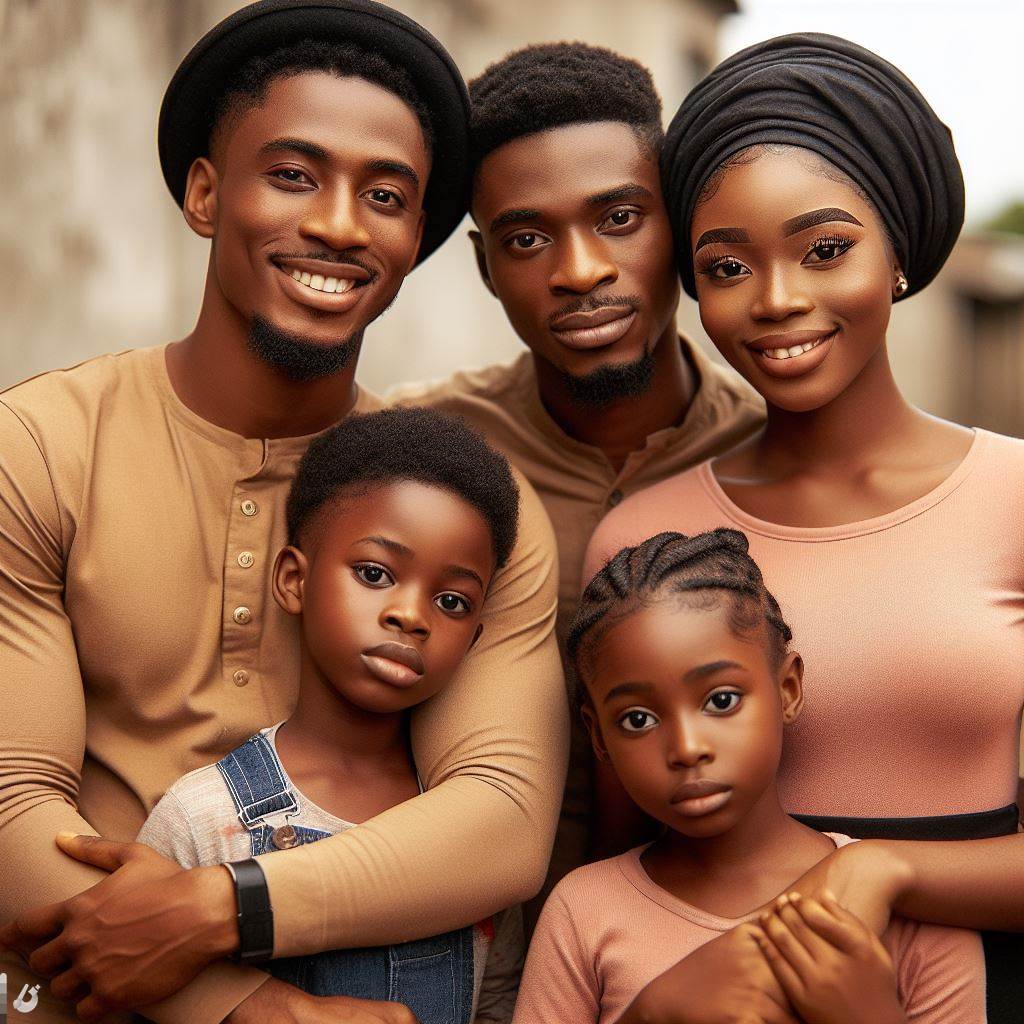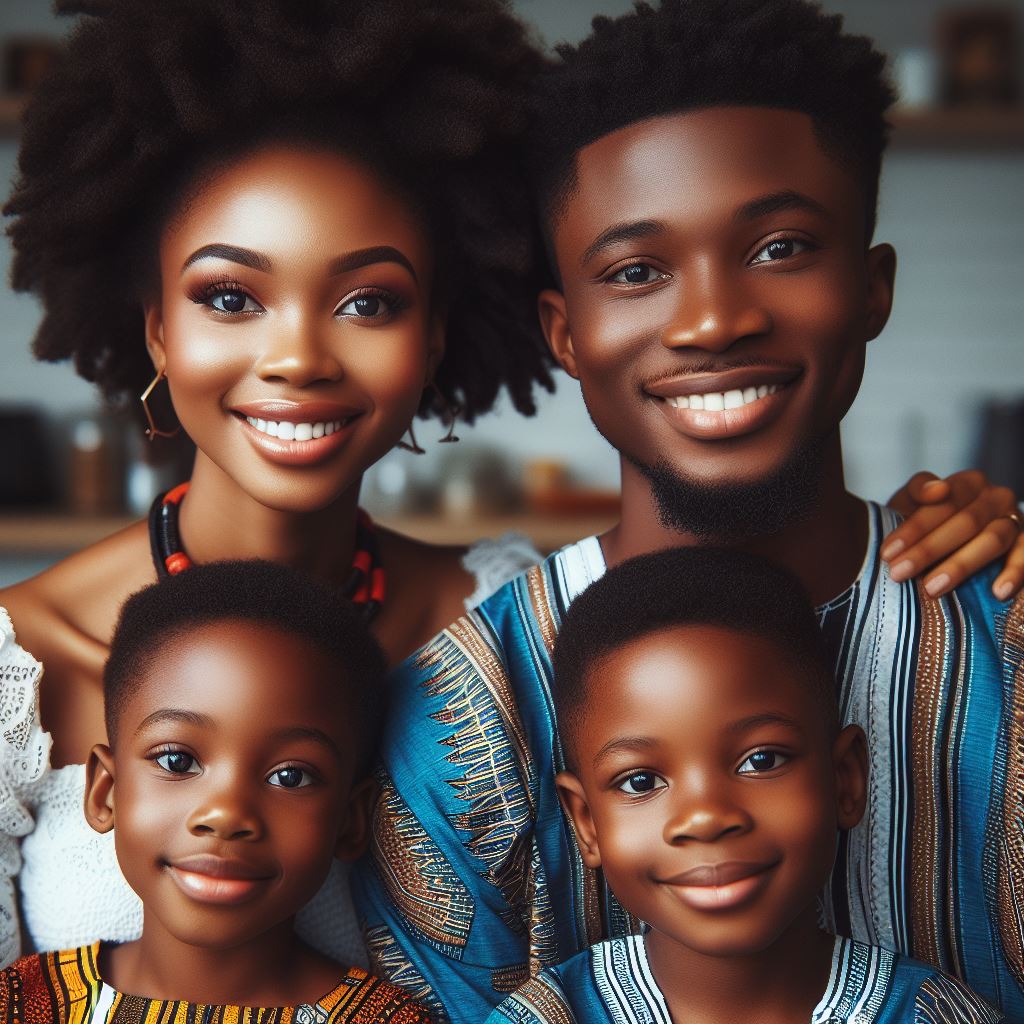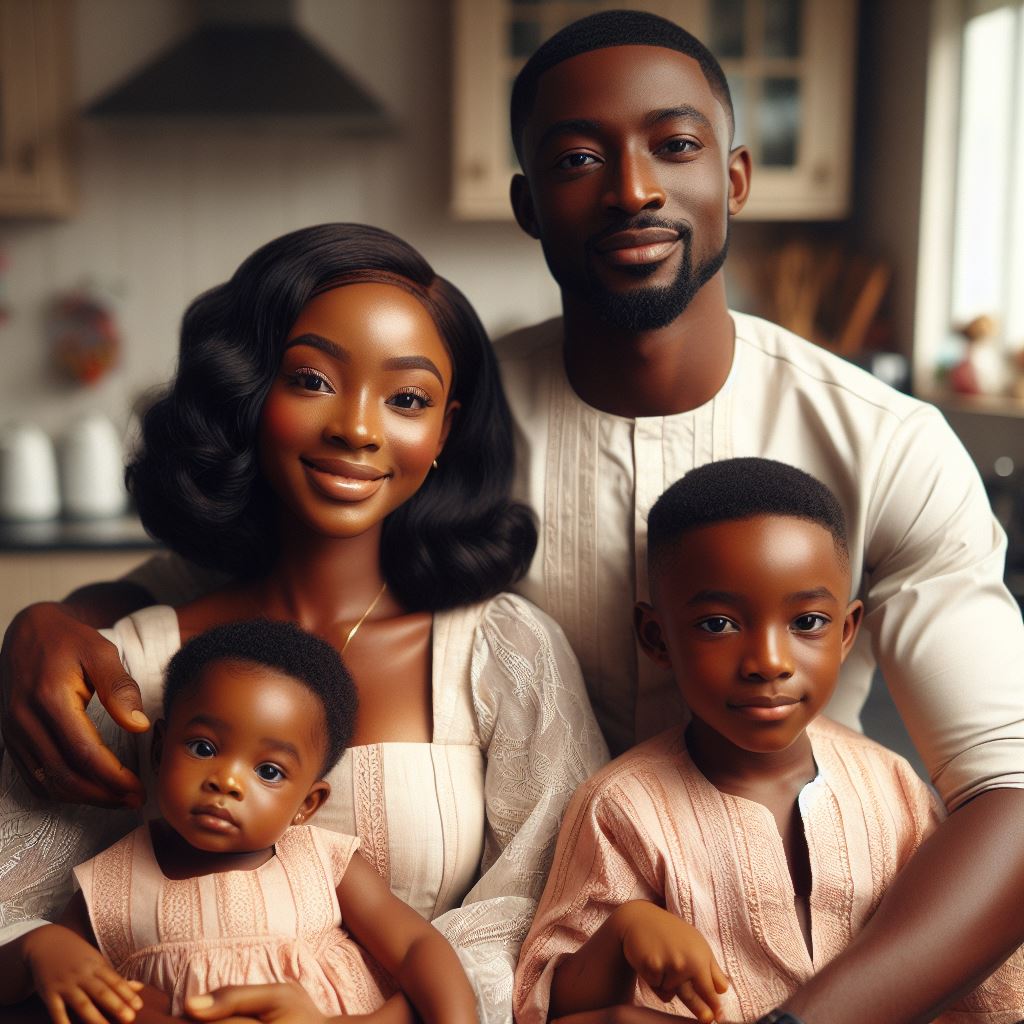Introduction
Culture plays a significant role in shaping gender roles and expectations in Nigeria. Understanding this impact is crucial for various reasons.
Nigerian culture has a deep-rooted influence on gender dynamics. It shapes expectations and norms regarding the behavior and roles of men and women.
These cultural beliefs and practices have far-reaching consequences on various aspects of Nigerian society, including education, employment, and the family structure.
Exploring the impact of culture on gender in Nigeria is essential for promoting gender equality and addressing gender-based discrimination and disparities.
By understanding the cultural context, policymakers, educators, and activists can develop strategies to challenge harmful gender stereotypes and promote more inclusive and equitable societies.
Nigerian culture strongly adheres to traditional gender roles, where men are expected to be providers and protectors while women are expected to be homemakers and caretakers.
This cultural framework often limits women’s opportunities for education, employment, and leadership roles, perpetuating gender inequalities.
Moreover, it influences societal perceptions and expectations of masculinity and femininity, reinforcing harmful stereotypes and discrimination.
By delving into the influence of culture on gender roles in Nigeria, it becomes evident that challenging these cultural norms is crucial for achieving gender equality.
The subsequent sections will examine in more detail the specific areas where Nigerian culture impacts gender dynamics and the significance of addressing these issues for achieving progress and empowerment.
Historical Context
Nigeria’s rich cultural heritage dates back centuries, shaping its gender dynamics.
Pre-colonial Nigeria embraced traditional gender roles, with distinct responsibilities for men and women.
Men were typically responsible for hunting, farming, and community leadership, while women managed domestic chores and childcare.
Traditional gender roles in pre-colonial Nigeria
Nigerian society assigned specific roles and responsibilities based on gender.
Men held positions of authority and made important decisions within their clans.
Parenting Made Just for You
Get personalized Parenting Solutions tailored to your child’s needs. Transform your parenting journey with expert guidance in 1-3 days.
Get StartedWomen played essential roles in sustaining the household, caring for children, and supporting their husbands.
Gender roles were deeply embedded in Nigeria’s cultural fabric, influencing societal norms and expectations.
Influence of colonization on gender dynamics in Nigeria
The arrival of European colonizers in the late 19th century significantly impacted Nigeria’s gender dynamics.
The introduction of Western ideologies and beliefs began to challenge traditional gender roles.
European colonizers imposed their own patriarchal systems, which undermined the status and autonomy of Nigerian women.
The legal system introduced by colonizers reinforced gender disparities, restricting women’s rights and opportunities.
Nigerian women were marginalized and denied access to education, healthcare, and formal employment.
The colonizers’ influence also led to the erosion of traditional gender relationships and the breakdown of extended family support structures.
This shift created a gender imbalance where men gained more privileges and power in Nigerian society.
Despite the negative effects of colonization, Nigeria’s cultural resilience persists:
Nigerian culture remains vibrant, with a strong sense of identity and pride.
Efforts are being made to reclaim and preserve traditional gender roles within the Nigerian society.
Women’s rights movements have gained momentum, advocating for gender equality and challenging oppressive norms.
The Nigerian government has implemented policies to protect women’s rights and dismantle discriminatory practices.
Unveil the Perfect Name that Tells Your Family's Story
Let us help you find a name that embodies your family's values, traditions, and dreams. Our personalized consultation weaves cultural insights to create a name that's uniquely yours.
Get StartedDeep-rooted cultural traditions continue to be celebrated, enabling the reclamation of gender equality.
In essence, Nigeria’s gender dynamics have evolved over time, influenced by historical context and colonization.
Pre-colonial Nigeria adhered to traditional gender roles, with clear distinctions between men and women’s responsibilities.
However, colonization introduced patriarchal systems that marginalized women and restricted their rights.
Despite these setbacks, Nigeria’s rich cultural heritage is being reclaimed, and efforts for gender equality are underway.
By acknowledging the impact of culture and history, Nigeria can strive towards a more inclusive and equitable society that embraces diversity.
Read: Raising Boys and Girls: Tips for Nigerian Families
Cultural Factors Affecting Gender in Nigeria
Culture plays a significant role in shaping gender roles and expectations in Nigeria.
Various cultural factors contribute to the way gender is perceived and treated in Nigerian society.
Role of religion and its influence on gender roles
Religion, as a prominent cultural aspect in Nigeria, influences gender roles and expectations.
The majority of Nigerians are religious, with Islam and Christianity being the two dominant religions.
These religions often propagate traditional gender norms and reinforce specific roles for men and women.
Impact of tribal traditions on gender expectations
Tribal traditions also exert a strong influence on gender expectations in Nigeria.
Nigeria is a culturally diverse country with over 250 ethnic groups, each having its own set of traditions and practices.
These traditions often emphasize different roles and responsibilities for men and women, which can impact gender dynamics in various communities.
Influence of family structures and kinship systems on gender roles
Family structures and kinship systems also play a crucial role in shaping gender roles in Nigeria.
The extended family structure is prevalent in Nigerian society, with strong ties and obligations towards one’s family members.
These systems often reinforce traditional gender roles, where men are expected to be the breadwinners, while women are responsible for childcare and domestic duties.
Significance of societal norms and expectations regarding gender in Nigeria
Societal norms and expectations regarding gender in Nigeria also contribute to the overall understanding of gender roles.
In Nigerian culture, traditional gender norms often prioritize male dominance and female subordination.
Women are expected to be submissive, modest, and prioritize their roles within the family.
These cultural factors have significant impacts on the lives of Nigerian men and women.
They can shape their access to education, employment opportunities, and overall life choices.
For example, women may face barriers when trying to pursue higher education or advance in their careers due to societal expectations and traditional gender roles.
Moreover, these cultural factors can also influence the prevalence and acceptance of gender-based violence and discrimination.
Traditional norms often perpetuate harmful practices such as female genital mutilation, child marriage, and domestic violence, which disproportionately affect women and girls in Nigeria.
Addressing these cultural factors
Addressing these cultural factors is crucial for achieving gender equality in Nigeria.
Efforts should be made to challenge traditional gender norms and promote gender-responsive policies.
Education plays a vital role in changing attitudes and beliefs surrounding gender, ensuring that both boys and girls are encouraged to pursue their aspirations without limitations.
Religion, as a powerful force, can also be used positively to challenge gender stereotypes and promote equality.
Religious leaders and institutions should highlight the importance of gender justice and equal rights, emphasizing the intrinsic value and potential of both men and women.
Furthermore, empowering women and promoting their participation in decision-making processes can lead to more inclusive societal norms.
By promoting women’s leadership and challenging stereotypes, Nigeria can work towards dismantling harmful gender expectations and achieving true gender equality.
In short, cultural factors such as religion, tribal traditions, family structures, and societal norms significantly impact gender roles and expectations in Nigeria.
Recognizing and addressing these cultural factors is crucial for achieving gender equality in the country and empowering both men and women to reach their full potential.
Economic Implications
Disparities in income and employment opportunities contribute to gender inequality in Nigeria.
Cultural norms influence the gender pay gap, where women often earn less than men.
Women face challenges in accessing economic resources and opportunities for entrepreneurship.
Disparities in income and employment opportunities between genders
Women in Nigeria typically earn lower wages compared to men, leading to economic inequality.
Gender stereotypes and cultural expectations limit women’s access to high-paying jobs.
Men often have more employment opportunities and are favored for leadership positions.
Influence of culture on the gender pay gap in Nigeria
Traditional gender roles and cultural norms perpetuate the gender pay gap in Nigeria.
The expectation that women prioritize family responsibilities over their careers leads to lower wages.
Discrimination and biases based on gender contribute to the pay disparity.
Challenges faced by women in accessing economic resources and entrepreneurship
Limited access to credit and financial resources hinder women’s ability to start businesses.
Cultural norms often discourage women from pursuing entrepreneurship, restricting their economic opportunities.
Lack of support and network for women entrepreneurs makes it harder for them to succeed in business.
In general, culture has a significant impact on gender in Nigeria, including economic implications.
Disparities in income and employment opportunities exist between genders, influenced by cultural norms and expectations.
This contributes to the gender pay gap and limits women’s access to economic resources and entrepreneurship.
Addressing these challenges requires a shift in cultural attitudes, providing equal opportunities and support for women in the economic sphere.
Read: Gender Roles in Nigeria: What Parents Should Know

Educational Perspectives
The impact of cultural beliefs on access to education for girls in Nigeria
Cultural beliefs in Nigeria often prioritize boys’ education over girls’ education. This hinders girls’ access to education.
Many traditional Nigerian cultures value girls solely for their domestic roles rather than their intellectual potential.
As a result of these cultural beliefs, many families are more likely to allocate resources and support for their sons’ education.
Girls often face early marriages and are expected to take care of household responsibilities, limiting their educational opportunities.
Gender disparities in educational attainment and enrollment rates in Nigeria
The gender disparities in educational attainment and enrollment rates in Nigeria are substantial.
Recent data reveals that girls’ enrollment rates in primary and secondary education are significantly lower than boys’.
Girls are more likely to drop out of school due to early marriages, pregnancies, and societal expectations.
In tertiary education, the gap between male and female enrollment rates is also significant.
These gender disparities have negative implications for girls’ future prospects and contribute to gender inequality.
Effect of cultural biases and stereotypes on girls’ academic performance and career choices
Cultural biases and stereotypes significantly impact girls’ academic performance and career choices in Nigeria.
Girls are often discouraged from pursuing science, technology, engineering, and mathematics (STEM) fields due to cultural beliefs.
There is a prevailing notion that girls are better suited for more “feminine” careers such as nursing or teaching.
These biases restrict girls’ opportunities to explore their potential in various fields and limit their career choices.
Furthermore, girls who challenge cultural norms and pursue higher education often face scrutiny and resistance.
In review, cultural beliefs in Nigeria pose significant barriers to girls’ education and educational attainment.
Gender disparities in enrollment rates further perpetuate gender inequality.
Cultural biases and stereotypes limit girls’ academic and career choices, hindering their overall development and potential.
To address these issues, it is crucial to challenge and change deep-rooted cultural beliefs and biases, promote equal access to education, and encourage girls’ participation in diverse fields.
Read: Understanding Gender: Basics for Nigerian Parents
Social and Cultural Norms
In Nigeria, social and cultural norms play a significant role in shaping gender dynamics.
Gender roles are often based on traditional expectations and stereotypes.
Men are typically expected to be providers and decision-makers within the family.
Women, on the other hand, are traditionally seen as caregivers and homemakers.
These norms can lead to inequality and limit opportunities for individuals to break free from traditional roles.
Expectations Surrounding Marriage, Childbearing, and Child-rearing
In Nigerian culture, marriage is highly valued and considered a major milestone.
Women are expected to marry, have children, and prioritize their role as mothers.
Childbearing is often seen as the ultimate goal for women, overshadowing other aspirations.
These expectations can create pressure and define a woman’s value solely based on her ability to have children.
Gender-Based Violence and its Cultural Acceptance
Gender-based violence is a prevalent issue in Nigeria, and sadly, it is often culturally accepted.
Traditional patriarchal norms contribute to the normalization of violence against women.
Domestic violence, rape, and child marriage are persistently prevalent, perpetuating a culture of silence.
This cultural acceptance further exacerbates the suffering and marginalization experienced by victims.
Stigmatization of Certain Gender Expressions and Orientations
In Nigeria, certain gender expressions and orientations face severe stigmatization and discrimination.
Homosexuality, for example, is criminalized under the Nigerian law and is highly disapproved of culturally.
This stigma results in limited rights, exclusion, and even violence against individuals with non-conforming gender expressions.
Transgender individuals also face significant challenges due to societal and cultural norms.
The impact of culture on gender in Nigeria is profound, affecting various aspects of life.
Social and cultural norms reinforce traditional gender roles, limiting opportunities for individuals.
Expectations surrounding marriage and childbearing further perpetuate gender inequality.
Gender-based violence is culturally accepted, while expressions and orientations contrary to societal norms face stigmatization.
Addressing these issues requires a comprehensive effort to challenge and redefine cultural norms surrounding gender.
Changing Dynamics
Gender equality efforts in Nigeria have gradually gained momentum in recent years.
Women in Nigeria are breaking barriers and entering traditionally male-dominated fields.
The traditional gender roles that once confined Nigerian women are slowly being challenged.
Men are also starting to embrace non-traditional roles such as homemaking and child-rearing.
Efforts towards gender equality in Nigeria
Various NGOs and government organizations are working towards empowering women and promoting equality.
Access to education for girls has improved, opening up opportunities for them to pursue professional careers.
The Nigerian government has implemented policies to address gender-based violence and discrimination.
Women are increasingly occupying leadership positions in politics, business, and other sectors.
Influence of globalization and modernization on gender roles
Globalization has exposed Nigerians to more progressive ideas about gender equality.
Modernization has brought about changes in family dynamics and societal expectations.
Nigerians redefine traditional gender roles, embracing egalitarian values, shifting towards more equality in societal expectations.
Economic opportunities from globalization have empowered women and expanded their roles in society.
Role of media and technology in challenging cultural norms
The media and technology have played a significant role in promoting gender equality.
Social media platforms have given women a voice to discuss gender issues and advocate for change.
Television shows and movies are challenging gender stereotypes and promoting diverse representations.
Online platforms provide educational resources and support networks for women in Nigeria.
In a nutshell, Nigeria is experiencing changing dynamics in terms of gender roles and cultural norms.
Efforts towards gender equality, influenced by globalization and modernization, have led to significant progress.
Media and technology actively challenge traditional norms, playing a pivotal role in societal evolution.
Nigeria needs to overcome cultural beliefs and attain gender equality, still work remains in this endeavor.
Conclusion
The impact of culture on gender in Nigeria is significant and pervasive.
Throughout this post, we have seen how cultural norms and traditions dictate the roles and expectations placed upon individuals based on their gender.
These cultural biases often lead to the marginalization and discrimination of women, limiting their opportunities and agency.
However, it is crucial to address these biases and promote gender equality in order to advance as a society.
By challenging harmful cultural practices and advocating for equal rights and opportunities for all genders, we can create a more inclusive and just Nigeria.
It is not enough to simply recognize the impact of culture on gender; we must take action.
Individuals and society as a whole need to actively challenge and change harmful cultural practices that perpetuate gender inequality.
By educating ourselves and others, engaging in dialogue, and supporting initiatives that champion gender equality, we can create a better future for all Nigerians.
Together, let us strive for a Nigeria where cultural norms do not limit the potential and freedom of individuals based on their gender.




